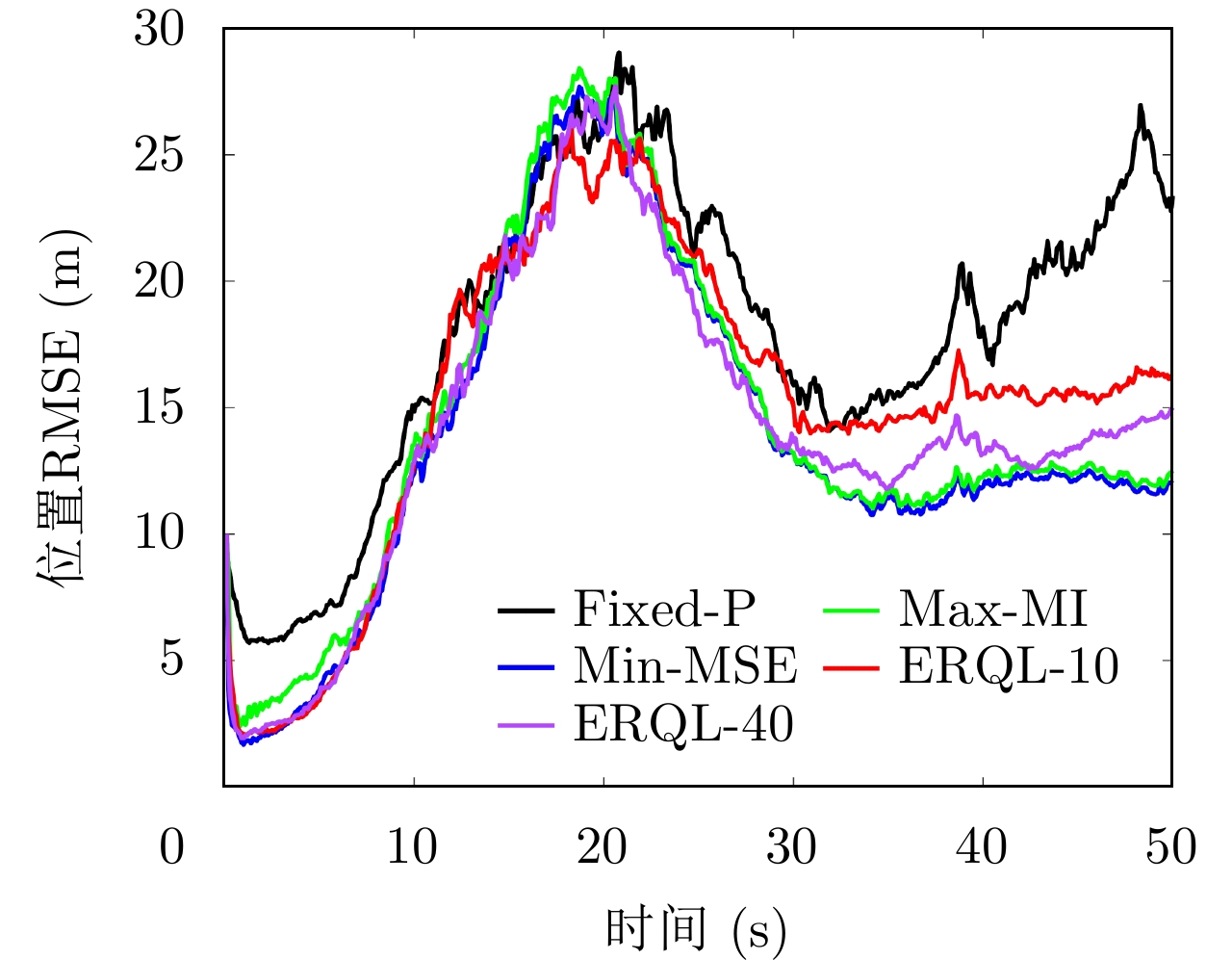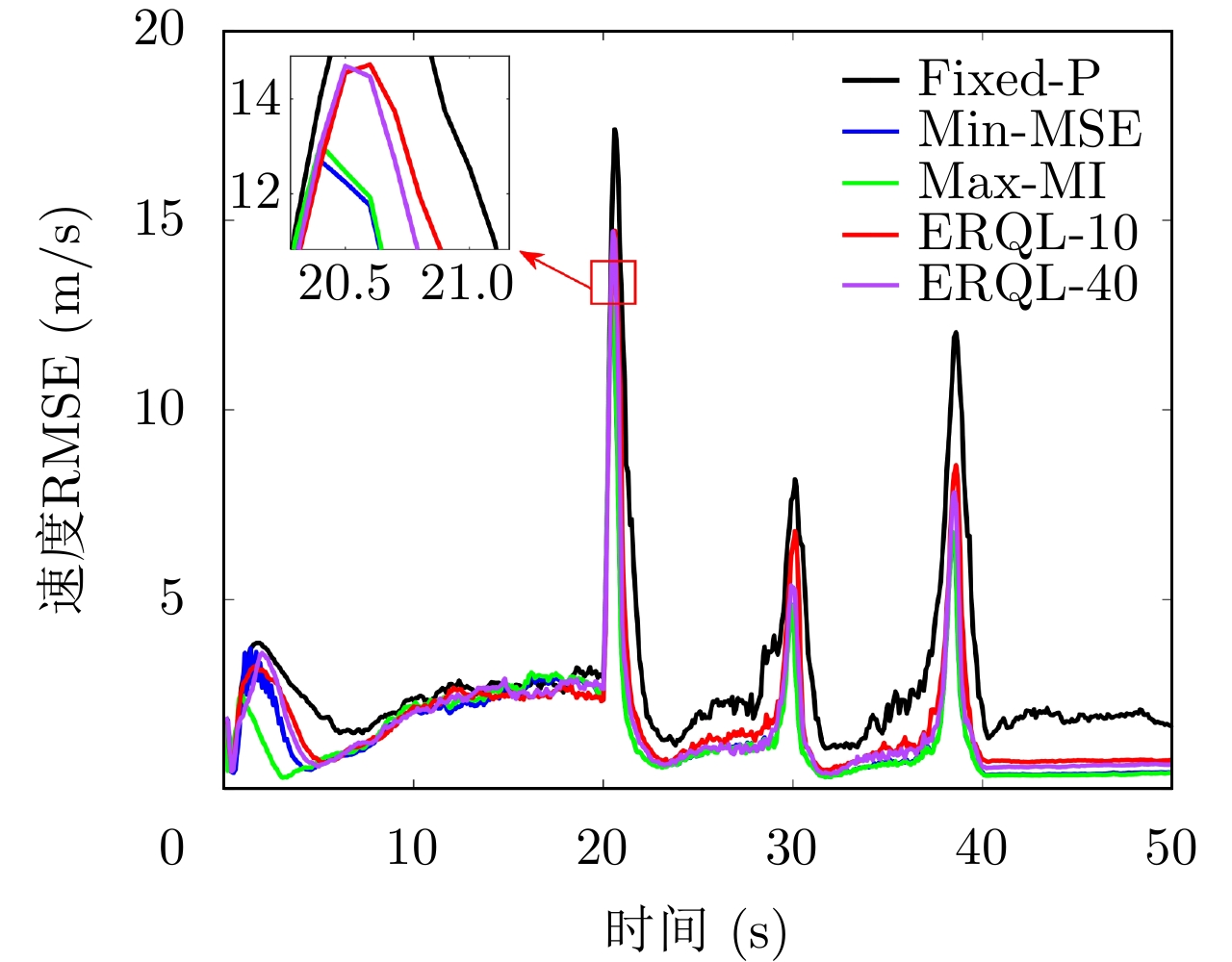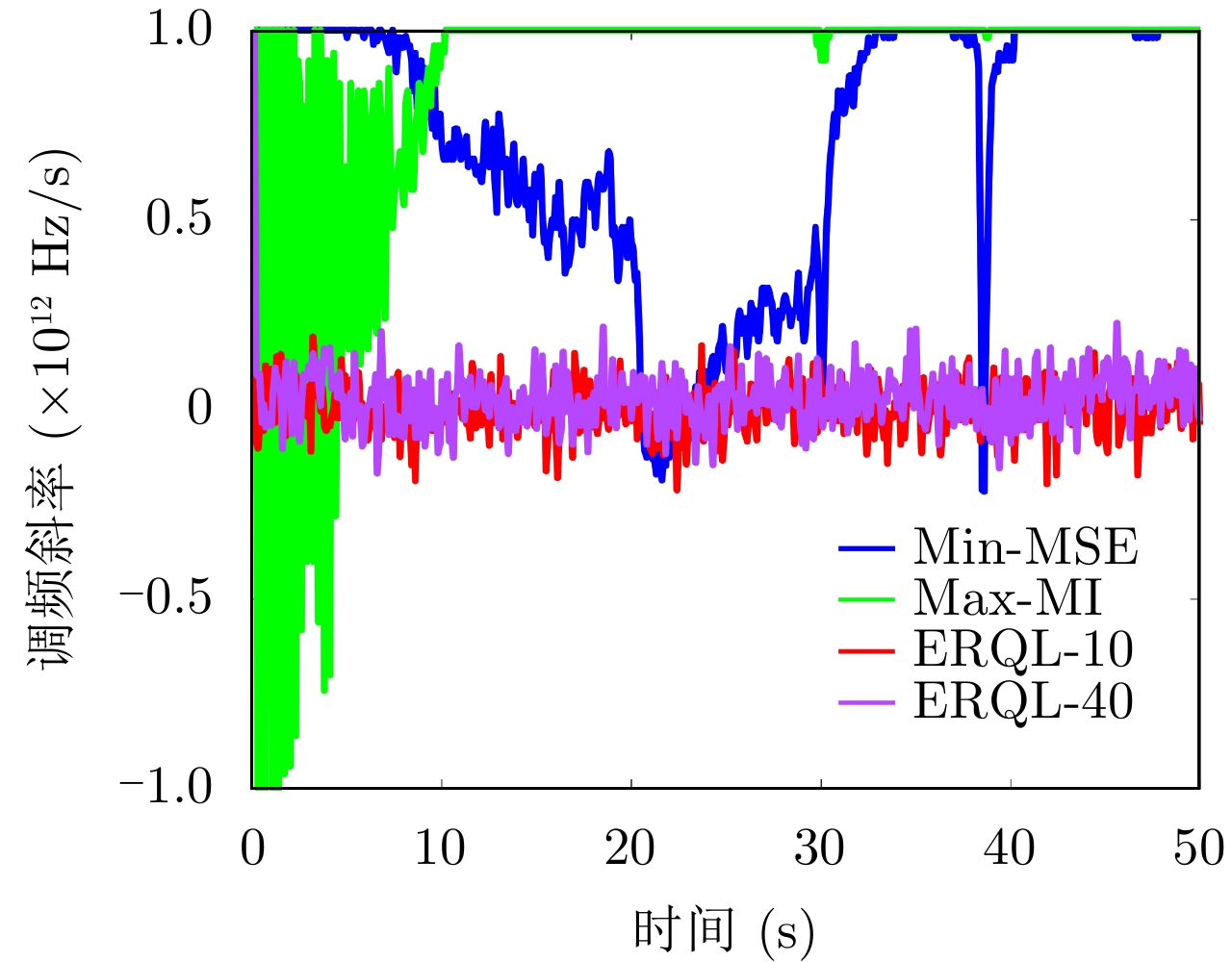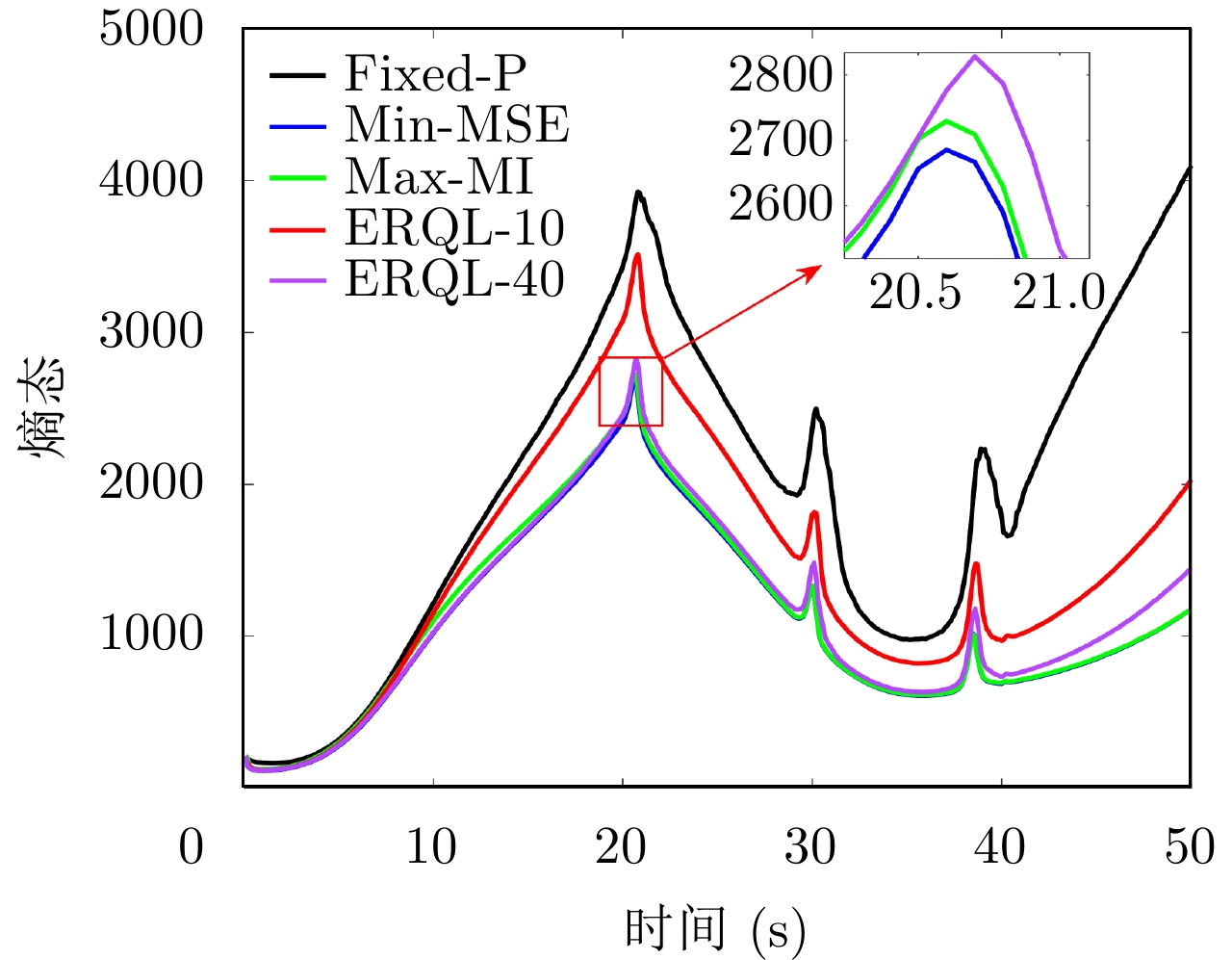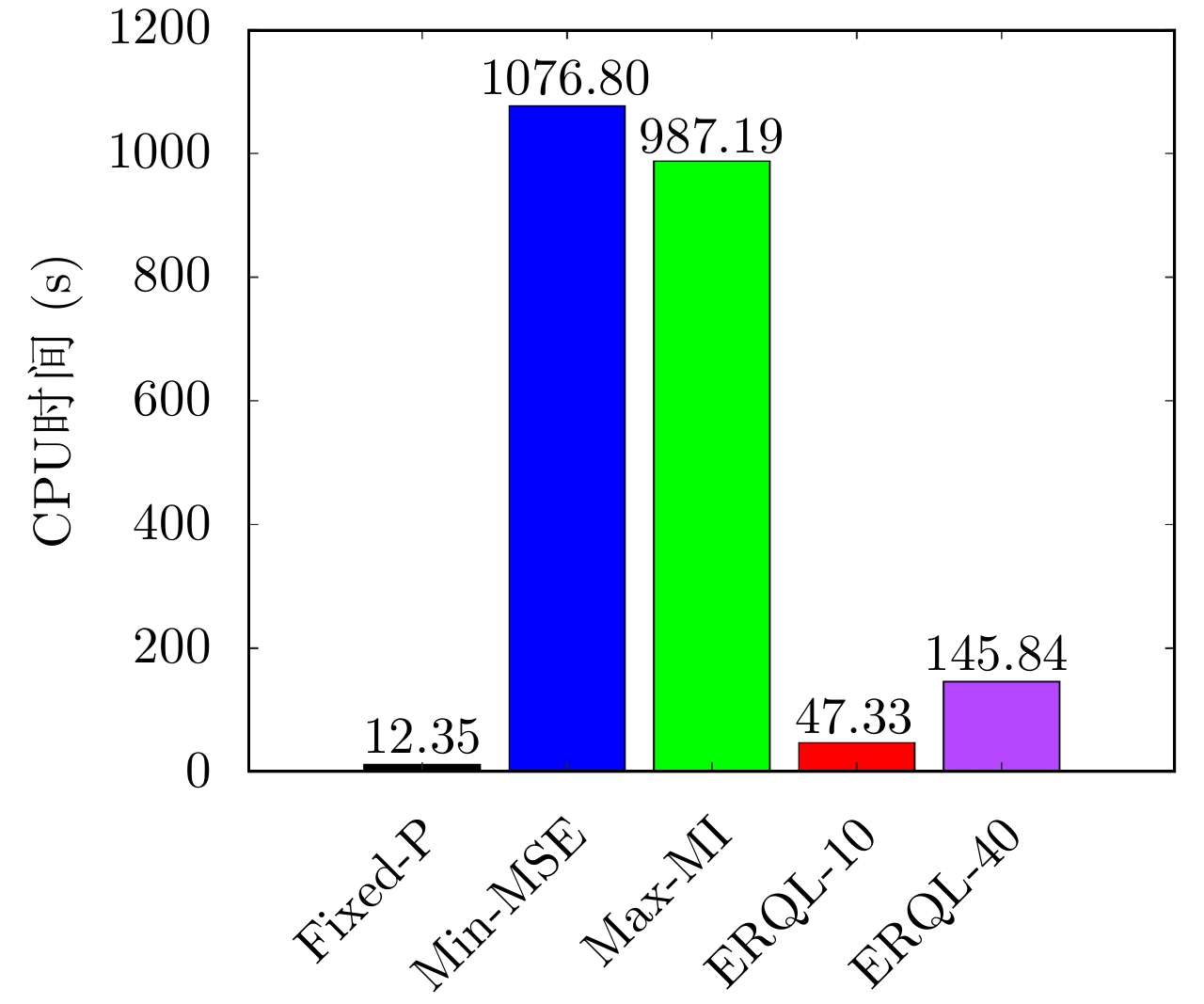| [1] |
YUAN Ye, YI Wei, HOSEINNEZHAD R, et al. Robust power allocation for resource-aware multi-target tracking with colocated MIMO radars[J]. IEEE Transactions on Signal Processing, 2021, 69: 443–458. doi: 10.1109/TSP.2020.3047519 |
| [2] |
SUN Zhichao, YEN G G, WU Junjie, et al. Mission planning for energy-efficient passive UAV radar imaging system based on substage division collaborative search[J]. IEEE Transactions on Cybernetics, 2023, 53(1): 275–288. doi: 10.1109/TCYB.2021.3090662 |
| [3] |
LIANG Jing and LIANG Qilian. Design and analysis of distributed radar sensor networks[J]. IEEE Transactions on Parallel and Distributed Systems, 2011, 22(11): 1926–1933. doi: 10.1109/TPDS.2011.45 |
| [4] |
HAYKIN S. Cognitive radar: A way of the future[J]. IEEE Signal Processing Magazine, 2006, 23(1): 30–40. doi: 10.1109/MSP.2006.1593335 |
| [5] |
LUO Zihan, LIANG Jing, and XU Zekai. Intelligent waveform optimization for target tracking in radar sensor networks[C]. 10th International Conference on Communications, Signal Processing, and Systems (CSPS), Changbaishan, China, 2021: 165–172.
|
| [6] |
HAYKIN S. Cognition is the key to the next generation of radar systems[C]. 2009 IEEE 13th Digital Signal Processing Workshop and 5th IEEE Signal Processing Education Workshop, Marco Island, USA, 2009: 463–467.
|
| [7] |
HAYKIN S, ZIA A, ARASARATNAM I, et al. Cognitive tracking radar[C]. 2010 IEEE Radar Conference, Arlington, USA, 2010: 1467–1470.
|
| [8] |
GUERCI J R. Cognitive radar: A knowledge-aided fully adaptive approach[C]. 2010 IEEE Radar Conference, Arlington, USA, 2010: 1365–1370.
|
| [9] |
GUERCI J R, GUERCI R M, RANAGASWAMY M, et al. CoFAR: Cognitive fully adaptive radar[C]. 2014 IEEE Radar Conference, Cincinnati, USA, 2014: 984–989.
|
| [10] |
GUERCI J R. Cognitive Radar: The Knowledge-Aided Fully Adaptive Approach[M]. 2nd ed. Norwood, USA: Artech House, 2020.
|
| [11] |
BELL K L, BAKER C J, SMITH G E, et al. Cognitive radar framework for target detection and tracking[J]. IEEE Journal of Selected Topics in Signal Processing, 2015, 9(8): 1427–1439. doi: 10.1109/JSTSP.2015.2465304 |
| [12] |
SMITH G E, CAMMENGA Z, MITCHELL A, et al. Experiments with cognitive radar[C]. 2015 IEEE 6th International Workshop on Computational Advances in Multi-Sensor Adaptive Processing (CAMSAP), Cancun, Mexico, 2015: 293–296.
|
| [13] |
ZHANG Lingzhao and JIANG Min. Cognitive radar target tracking algorithm based on waveform selection[C]. 2021 IEEE 5th Advanced Information Technology, Electronic and Automation Control Conference (IAEAC), Chongqing, China, 2021: 1506–1510.
|
| [14] |
HULEIHEL W, TABRIKIAN J, and SHAVIT R. Optimal adaptive waveform design for cognitive MIMO radar[J]. IEEE Transactions on Signal Processing, 2013, 61(20): 5075–5089. doi: 10.1109/TSP.2013.2269045 |
| [15] |
ALDAYEL O, MONGA V, and RANGASWAMY M. Successive QCQP refinement for MIMO radar waveform design under practical constraints[J]. IEEE Transactions on Signal Processing, 2016, 64(14): 3760–3774. doi: 10.1109/TSP.2016.2552501 |
| [16] |
FENG Shuo and HAYKIN S. Cognitive risk control for transmit-waveform selection in vehicular radar systems[J]. IEEE Transactions on Vehicular Technology, 2018, 67(10): 9542–9556. doi: 10.1109/TVT.2018.2857718 |
| [17] |
SAVAGE C O and MORAN B. Waveform selection for maneuvering targets within an IMM framework[J]. IEEE Transactions on Aerospace and Electronic Systems, 2007, 43(3): 1205–1214. doi: 10.1109/TAES.2007.4383612 |
| [18] |
CLEMENTE C, SHOROKHOV I, PROUDLER I, et al. Radar waveform libraries using fractional Fourier transform[C]. 2014 IEEE Radar Conference, Cincinnati, USA, 2014: 855–858.
|
| [19] |
ZHAO Dehua, WEI Yinsheng, and LIU Yongtan. Real-time waveform adaption in spectral crowed environment using a sub-waveforms-based library[C]. 2016 CIE International Conference on Radar, Guangzhou, China, 2016: 1–5.
|
| [20] |
NGUYEN N H, DOGANCAY K, and DAVIS L M. Adaptive waveform selection for multistatic target tracking[J]. IEEE Transactions on Aerospace and Electronic Systems, 2015, 51(1): 688–701. doi: 10.1109/TAES.2014.130723 |
| [21] |
ROMAN J. R., GARNHAM J. W. and ANTONIK P., Information Theoretic Criterion for Waveform Selection. Fourth IEEE Workshop on Sensor Array and Multichannel Processing, 2006., Waltham, MA, USA, 2006, 444-448, doi: 10.1109/SAM.2006.1706172. |
| [22] |
CAO Xin, ZHENG Zhe, and AN Di. Adaptive waveform selection algorithm based on reinforcement learning for cognitive radar[C]. 2019 IEEE 2nd International Conference on Automation, Electronics and Electrical Engineering (AUTEEE), Shenyang, China, 2019: 208–213.
|
| [23] |
HAN Bo, HUANG Hanqiao, LEI Lei, et al. An improved IMM algorithm based on STSRCKF for maneuvering target tracking[J]. IEEE Access, 2019, 7: 57795–57804. doi: 10.1109/ACCESS.2019.2912983 |
| [24] |
BLACKMAN S S, DEMPSTER R J, BUSCH M T, et al. IMM/MHT solution to radar benchmark tracking problem[J]. IEEE Transactions on Aerospace and Electronic Systems, 1999, 35(2): 730–738. doi: 10.1109/7.766953 |
| [25] |
KERSHAW D J and EVANS R J. Optimal waveform selection for tracking systems[J]. IEEE Transactions on Information Theory, 1994, 40(5): 1536–1550. doi: 10.1109/18.333866 |
| [26] |
SIRA S P, PAPANDREOU-SUPPAPPOLA A, and MORRELL D. Advances in Waveform-Agile Sensing for Tracking[M]. Cham: Springer, 2009: 59–60.
|
| [27] |
WILLIAMS J L. Information theoretic sensor management[D]. [Ph. D. dissertation], Massachusetts Institute of Technology, 2007: 41–42.
|
| [28] |
ATHANS M and TSE E. A direct derivation of the optimal linear filter using the maximum principle[J]. IEEE Transactions on Automatic Control, 1967, 12(6): 690–698. doi: 10.1109/TAC.1967.1098732 |
| [29] |
THORNTON C E, KOZY M A, BUEHRER R M, et al. Deep reinforcement learning control for radar detection and tracking in congested spectral environments[J]. IEEE Transactions on Cognitive Communications and Networking, 2020, 6(4): 1335–1349. doi: 10.1109/TCCN.2020.3019605 |
| [30] |
WANG Qing, QIAO Yanming, and GAO Lirong. A cognitive radar waveform optimization approach based on deep reinforcement learning[C]. 2019 IEEE International Conference on Signal, Information and Data Processing (ICSIDP), Chongqing, China, 2019: 1–6.
|




 Submit Manuscript
Submit Manuscript Peer Review
Peer Review Editor Work
Editor Work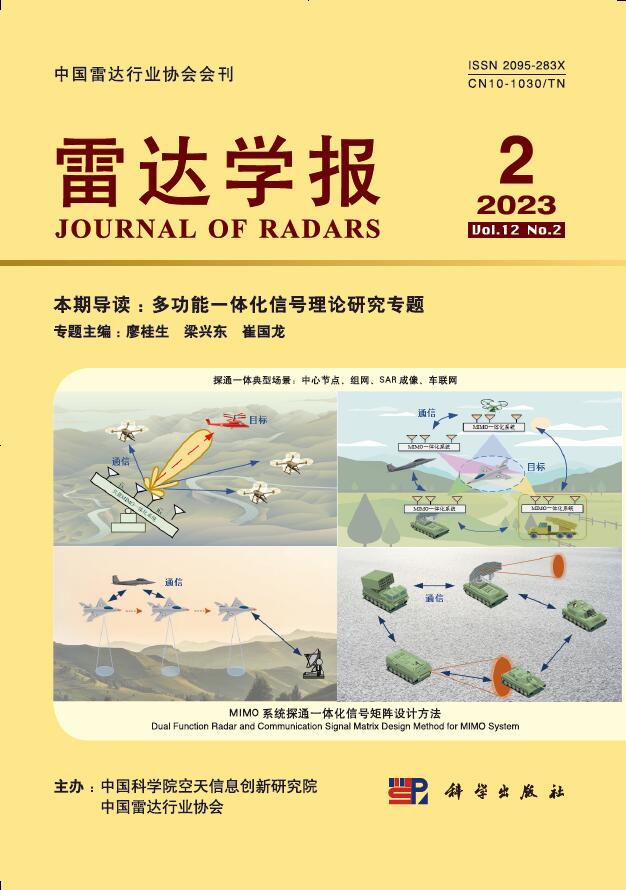





 DownLoad:
DownLoad:




